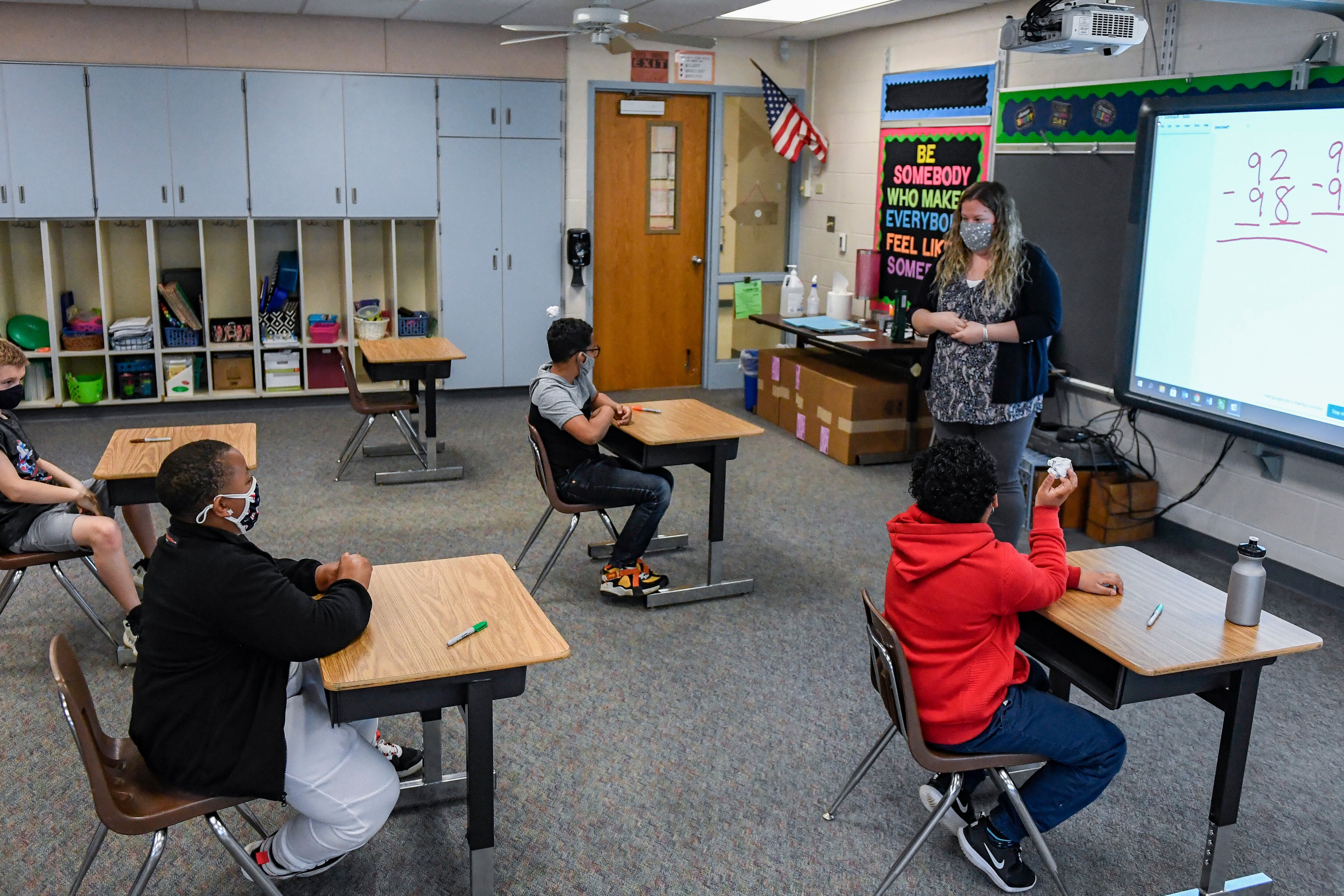New Jersey school districts have until the end of the year to determine if compensatory education must be provided to students with disabilities as a result of two and a half years of learning disruptions caused by the pandemic.
Under a state law passed in March, school districts must schedule Individualized Education Program, or IEP, meetings with parents of students with disabilities to discuss how their student can make up the services they missed due to remote learning during the pandemic. If a school district doesn’t meet with a parent or schedule a meeting before the Dec. 31 deadline, families can submit a written request to meet with school officials or find help from the state by requesting a due process hearing by Sept. 1, 2023.
“The school district has an affirmative obligation to schedule these meetings,” said Elizabeth Athos, senior educational equity attorney at Education Law Center. “The law says it can be sooner upon request of the parents.”
In 2020, Newark students switched to remote learning instead of in-person due to school closures caused by the pandemic. Special education services were allowed to go virtual under a new state rule that year prompting revised coursework for students with disabilities and virtual IEP meetings with parents as needed. Despite school districts’ obligations to students with disabilities during the pandemic, Chalkbeat Newark found that in 2020, some Newark students hadn’t received services for more than 10 days, a situation that constitutes a change in placement requiring an IEP meeting.
Compensatory education may include additional sessions per week or services provided beyond the regular school day. In 2020, the state department of education also told school districts that even if they complied with virtual services during the pandemic, make-up services might still be needed when students returned to in-person learning.
Similarly, if families did not have access to the internet during the pandemic and could not participate in online learning, a student’s IEP team, or Child Study Team in Newark, would have to determine what compensatory instruction could be required when schools reopened.
“We know that there were disruptions and gaps in education services, so school districts should be holding these meetings,” Athos said, adding that the teams work with parents to decide “what services can they provide in a meaningful way that will make up for that.”
Although school districts should provide information about what services a student missed during the pandemic, parents can also supplement those findings by providing more information about how a student responded to virtual services during their sessions or a list of services or days a child missed during that time.
“Either way, it’s good for parents to have thought through what the IEP required that their child receive and what the child actually did receive,” Athos added.
Students who turned 21 during remote learning are also entitled to receive compensatory education, according to the federal government. In 2021, New Jersey Gov. Phil Murphy signed a law providing a temporary one-year extension of special education and related services to students with disabilities age 21 or over in the 2020-21, 2021-22, or 2022-23 school years. The law applies to students who met with IEP team members and parents to determine a student’s eligibility.
“The idea is to see what the child needs and try and figure out how you would get the child to where they should be or where they would have been if they would’ve gotten the services that they needed,” Athos said.
In April, Murphy allocated nearly $18 million in federal American Rescue Plan funds to reimburse school districts for additional special education services for students impacted by the learning disruptions. As of April, the state Department of Education had approved reimbursement applications for 221 students in 78 school districts, according to the state.
Compensatory education has always been available under the federal Individuals with Disabilities Education Act, or IDEA, to students who may not have received their IEP-mandated services. Under the federal act, a school district must provide a “free appropriate public education,” or FAPE, to students with a disability, regardless of the student’s disability. The state Department of Education is obligated to supervise school districts’ special education programs to ensure compliance with state and federal law.
For more information on compensatory education, the Education Law Center provides an FAQ for parents about missed services during the pandemic. Families can also email Newark’s Office of Special Education or the state’s Office of Special Education at OSEinfo@doe.nj.gov for more information.
Jessie Gomez is a reporter for Chalkbeat Newark, covering public education in the city. Contact Jessie at jgomez@chalkbeat.org.
Correction: Dec. 1, 2022: A previous version of this story said parents have until Dec. 31 to request IEP meetings to discuss compensatory education. However, school districts are required by law to schedule meetings with parents, but parents are recommended to make a request in writing before the end of the year.






